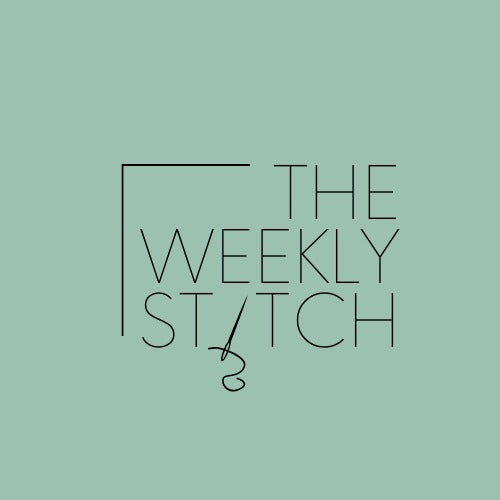Honest Footprint
Honest Basics began its journey as a sustainable brand with a focus on making continuous environmentally friendly choices throughout the production process and beyond.
Years on, this remains the foundation of our basics. We've broken down environmental sustainability into several key themes to show you what drives our decisions and why we made them in the first place.
🛢️ RESOURCES & WASTE
We believe, one of the most essential aspects of sustainability is resource use. The fewer resources taken from the planet, the smaller the negative environmental impact becomes. The better you ensure that waste can become a resource once again, the more climate-neutral you are.
As a small fashion brand, we will never reach the level of waste that larger brands in this industry produce, but we still remain very mindful of limiting products we cannot sell, following the ethos of 'No product left behind'. Samples created at the start of production runs, products with minor manufacturing issues, or anything else that prevents us selling them within our normal collection, are put online for sample sales or giveaways, or donated to charities such as Berliner Stadtmission.
As much as we enjoy making people happy with very cheap or free clothes, we are also proud that we keep these leftover products to a minimum. Through carefully planned and limited production runs, we ensure everything in our stock actually gets sold.
We have also made other decisions to reduce our impact on the planet. Even though it takes slightly longer, our collections are never flown from China to Germany but instead arrive by ship, or very occasionally by train. As transport is such a huge part of the emissions we generate as a brand (and globally) we have chosen these transport methods to keep our emissions down.
When you receive a package from us, you'll see that our clothes are delivered in minimal packaging with only a small FSC-certified cardboard wrapper and a cardboard inlay for stability. This is also how clothes are shipped from our factory. It's typically industry standard to individually wrap clothes in plastic bags, but we decided against this from Honest Basics' early days to reduce waste from the outset. Finally, whenever we receive returns or packages in cardboard boxes, we reuse them wherever possible.
🏭 SUPPLY CHAIN
The waste created at the end of a supply chain tends to be quite limited, however waste and resource-use can really accumulate during the production process. Therefore we have started an intensive consulting relationship with our main manufacturing partners to support them in reducing their impact on the environment.
Some of the factories of our supplier are part of the Carbon Leadership Program, which helps facilities reduce their carbon use and many of the factories are members of the ZDHC program. Through our consulting with our supplier, we have found that resource and waste management is all about focussing on operationalisation and making sure to stay away from ‘checkbox compliance’.
We do not merely want the factories to have all the labels that say they’re ‘green’, we want all the different levels of the organisation to have input into the decision making, which also leads to the most efficient and impactful climate-friendly decisions. For example, the better the cutting patterns are generated to reduce fabric cuttings, the less fabric the factories have to buy in the first place and the more textile waste is reduced! Of course all of the pre-consumer waste that is generated during manufacturing, when fabric cuttings really cannot be prevented, are recycled.
The material sourcing at the start of the supply chain should also not be forgotten. It is still our goal to have more direct relationships with our fabric suppliers, but for now we are very happy to have found fabric that is always certified organic and/or recycled. This way we can ensure that the least amount of resources possible were used, while still giving you a good and durable clothing item. An important note here is that we have stopped working with GOTS certified fabrics, as this certification does not cover recycled fibers and are therefore using the Organic Content Standard and Global Recycled Standard (both through Textile Exchange) to certify our fabrics. In the sourcing of all our other materials, like zippers and buttons, we look to use plastic-free materials as much as possible.
🐑 ANIMALS
All our products are 100% vegan.
This means that:
We don’t use any animal products or fibers in the materials we use for our basics. So for example, we don’t use leather, wool or silk in any of our products. Also of course not in trims such as buttons or patches.
We don’t use any animal products or substances in our production process. For example animal-derived dyes or glue can be used in the production process, but Honest Basics does not use any of these in our production.
We know that our basics being vegan is important to a lot of our customers. So, everyone in the team is aware that we can’t compromise on this point. Also, quite frankly, we don’t believe that animal products are really needed to make great clothing.
How do we control that our products and production really are vegan? On the material part, we always pay strict attention to the materials we use. Our production team has a list of preferred sustainable materials, such as organic cotton, recycled cotton or recycled viscose. Animal products such as wool, leather or silk are not on the list. We simply don’t compromise here and our partner-factory is also aware of this hard requirement.
Secondly the chemicals that are being used for the production of our basics are closely monitored by the factories, under the ZDHC-program (Zero Discharge Hazardous Chemicals). Under this program, a transparent monitoring of all chemical substances is demanded, therefore we can guarantee that we know what goes into the production of our basics and that no animal products were used. Additionally, in our experience animal-derived substances are only used in very rare cases in production. The main challenge of making products vegan often lies within the core materials.
Why are we self-certified vegan? We were a part of the PETA-program, however since they raised prices back in 2021, we decided to phase out of that certification. Don’t get us wrong: we very much respect the work that PETA is doing and the fact that their activism costs money. But the prices were unaffordable for us as a small business.




